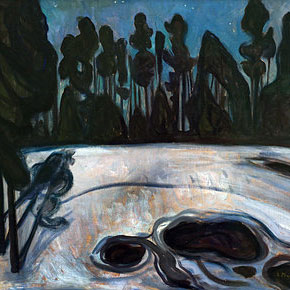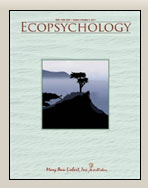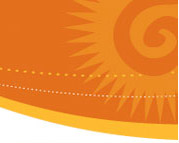Interview with Mary Jayne Rust
This fabulous interview of UK ecopsychologist Mary Jayne Rust by ecotherapist Linda Buzzell aired on the Ecopsychology Voices series produced by Carol Koziol, founder of the Canadian Ecopsychology Network.
This fabulous interview of UK ecopsychologist Mary Jayne Rust by ecotherapist Linda Buzzell aired on the Ecopsychology Voices series produced by Carol Koziol, founder of the Canadian Ecopsychology Network.
Linda Buzzell and Craig Chalquist, co-editors of Ecotherapy: Healing with Nature in Mind, present principles of Ecoresilience as guidance for people adjusting to a world in the midst of change. Their preamble speaks to the need for balance now and in the coming era if we hope, as persons and communities, to maintain a focused pace of working towards ecological restoration and to retain our individual and collective resilience despite the widespread effects of ecological imbalance:
“It’s pretty clear what isn’t working, but not so easy to envision the practicalities of a sustainable world that could really work. Craig Chalquist and I have been wrestling with this, and have developed 20 ecoresilience principles for personal and cultural adaptation to a changed planet. We’ve gathered wisdom from many sources, including the nature-based permaculture principles, ecopsychology, ecotherapy, ecospirituality, community building endeavors, indigenous wisdom, the arts, and depth psychology. Our hope is to provide at least the beginnings of an integral and hopefully inspirational view of how we and “all our relatives” might survive and even thrive on our Earth homeplace as environmental, political, economic and cultural conditions become ever more challenging.”
Click to view the paper:
2017 Buzzell – Handout The 20 Principles for Cultural Ecoresilience
REFERENCE
Buzzell, L. & Chalquist, C. (2017). 20 principles for ecoresilience. Communities Magazine, 176, Fall.
 Announcing Transpersonal Narratives in Eco-Psychology – an upcoming CONFER event happening 24-26 November, 2017 at the Eden project in Cornwall.
Announcing Transpersonal Narratives in Eco-Psychology – an upcoming CONFER event happening 24-26 November, 2017 at the Eden project in Cornwall.
It’s priced to be accessible to all. Many of our friends and colleagues will be there, and the sessions sound brilliant!
“Sadly, most people in the western world remain in denial of their inherent interconnection with all of life, merely through their avoidance of anything that remotely reminds them of their mortality (pain, discomfort, suffering, etc.), and they endure, much to the detriment of The Whole, self-selectively abdicating the responsibilities of their true nature as rescuers with a deep and powerful purpose. Instead, most wait, hoping that somebody or something “out there” will come and make everything all better again. Awakening in this time of crisis requires a more courageous response. It involves choosing to become conscious of the deleterious effects of one’s own sense of entitlement and how it is contributing to destroying life on planet Earth.” – Jonathan Stein
Read the article here – being moved from entitlement to enlightenment
 If you don’t yet know about the peer-reviewed quarterly journal, Ecopsychology, you’ll want to! Volume Two, Issue 4 contains a review written by our own John Scull of ICE: Review of Right Relationship: Building a Whole Earth Economy by Peter G. Brown and Geoffrey Garver, with Keith Helmuth, Robert Howell, and Steve Szeghi.
If you don’t yet know about the peer-reviewed quarterly journal, Ecopsychology, you’ll want to! Volume Two, Issue 4 contains a review written by our own John Scull of ICE: Review of Right Relationship: Building a Whole Earth Economy by Peter G. Brown and Geoffrey Garver, with Keith Helmuth, Robert Howell, and Steve Szeghi.
from Daniel Schwab, a video relating the correspondences between ecopsychology and Christopher Alexander’s generative approach to architecture, in several parts:
Schwab argues that the ecopsychology platform is shared to a high degree by architect Christopher Alexander (author of A Pattern Language and The Nature of Order) and that an ecopsychological understanding could enrich a nature-like approach to architecture.
The video was created for the 2011 Portland Urban Architecture Laboratory 2011 International Conference on “Generative Process, Patterns and the Urban Challenge.”
 Have a look at imaginal.com.au, a great website by Peter Brandis with short articles on ecopsychology exploring the interactions and interconnectedness of nature/ soul/ self.
Have a look at imaginal.com.au, a great website by Peter Brandis with short articles on ecopsychology exploring the interactions and interconnectedness of nature/ soul/ self.